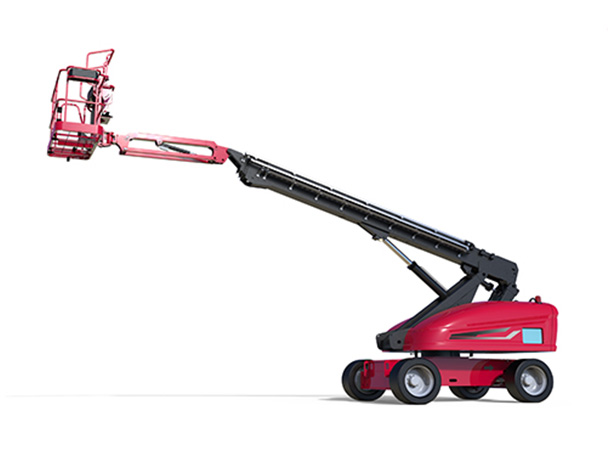Your Position: Home - Machinery - How to Choose the Right Telescopic Boom Lifting Height?
Telescopic boom lifts are versatile and essential equipment in various industries, offering the ability to reach elevated work areas safely and efficiently. One critical aspect of selecting a telescopic boom lift is determining the appropriate lifting height for the task at hand. Here's a comprehensive guide on how to make the right choice for your specific needs.
1. Assess the Work Environment
Before deciding on the lifting height, thoroughly assess the work environment. Consider factors such as:
Vertical Reach Requirements: Determine the maximum height you need to reach for the specific tasks, accounting for obstacles or structures that may impact the lift's vertical movement.
Horizontal Reach: Evaluate the horizontal distance required to access the work area. Some tasks might require reaching over obstacles or working at a distance from the base of the equipment.
Terrain and Surface Conditions: Take note of the terrain and surface conditions, as different telescopic boom lifts are designed for various terrains. Choose a lift with features suitable for the ground conditions of your work environment.
2. Understand Weight Capacity
Telescopic boom lifts come with different weight capacities. It's crucial to factor in not only the weight of the operator but also the weight of tools and materials being transported. Ensure that the chosen lift can handle the total weight comfortably.

3. Consider Future Needs
Anticipate potential changes in your work requirements or future projects. Choosing a telescopic boom lift with a slightly higher lifting height than your immediate needs might provide flexibility for upcoming tasks. Future-proofing your equipment choice can save you from having to upgrade sooner than necessary.
4. Account for Safety Margins
Safety should always be a top priority when working at height. To account for any unforeseen circumstances or variations in the work environment, consider selecting a telescopic boom lift with a lifting height slightly exceeding your calculated requirements. This provides a safety margin and ensures that the equipment can handle unexpected challenges.
5. Evaluate Transport and Storage Considerations
The physical dimensions of the telescopic boom lift are crucial, not just for the task at hand but also for transportation and storage. Ensure that the lift can be easily transported to the job site and maneuvered within the working area. Consider the dimensions when the boom is retracted and extended.
6. Understand Power Source Options
Telescopic boom lifts are available with various power sources, including diesel, electric, and hybrid options. Consider the availability of power sources at your work site and choose a lift that aligns with your preferences and environmental considerations.
7. Consult with Experts
If you're uncertain about the appropriate lifting height for your specific application, consult with industry experts or equipment suppliers. They can provide valuable insights based on their experience and knowledge of various telescopic boom lift models.
Conclusion
Choosing the right telescopic boom lifting height involves a careful evaluation of your work requirements, safety considerations, and future needs. By understanding the unique aspects of your tasks and considering the factors outlined in this guide, you can make an informed decision that enhances efficiency and safety in your elevated work projects.
341
0
0
Comments
All Comments (0)